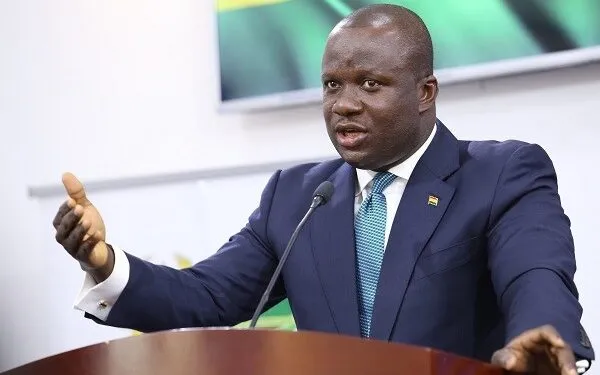Published
7 months agoon
By
Adubianews
Ghana’s decision to abstain from a significant LGBTQ vote at the United Nations Human Rights Council has sparked intense backlash from the Minority in Parliament, with Ranking Member of the Foreign Affairs Committee, Samuel Abu Jinapor, leading the charge.
Jinapor did not mince words as he accused the Akufo-Addo-led government of abandoning its own promises and playing politics with Ghana’s core cultural values. He said the Minority Caucus found the abstention deeply disappointing, particularly when coupled with what he described as a “misleading” justification from the Ministry of Foreign Affairs.
“The Ministry claims the vote was about protecting LGBTQ individuals from violence and discrimination. That’s completely false,” he declared. “The real issue before the Council was about whether to extend the mandate of the Independent Expert on Sexual Orientation and Gender Identity (IE SOGI), which includes the promotion of LGBTQ rights.”
Jinapor insisted the government’s explanation lacked both legal and moral merit. He pushed back against the Ministry’s reference to Ghana’s Constitution, specifically Chapter Five and Article 17. “There’s nothing in Article 17 that supports individual choice of sexual orientation or gender identity,” he argued. “In fact, Article 12 makes it clear that rights in Ghana are subject to public interest.”
The Damongo MP took his criticism further by highlighting what he sees as blatant contradictions between the government’s current behavior and its previous commitments while in opposition. He pointed to the Promotion of Proper Human Sexual Rights and Ghanaian Family Values Bill, a bill that was strongly supported by the NPP when it wasn’t in power.
“That bill, which criminalises LGBTQ activity and upholds Ghanaian family values, was once championed by this same government,” Jinapor noted. “Today, it’s gathering dust in Parliament while the government stays silent and abstains internationally.”
Backing his position with international evidence, Jinapor cited the April 2025 report by the Independent Expert, which encouraged countries to end both legal and practical criminalisation of LGBTQ practices. He said that stance was a direct threat to Ghana’s cultural and legal norms.
“This isn’t about protecting people from harm. It’s about pushing an agenda that runs counter to our laws and values. Ghana had a chance to stand firm, and failed,” he said. “The government’s repeated abstentions and inaction show a worrying level of indifference.”
The Minority’s position, Jinapor emphasized, is not one of hate or intolerance but of principle. “We don’t support violence against anyone, including members of the LGBTQ community,” he clarified. “But we will continue to defend our cultural identity and national integrity at home and abroad.”
He concluded with a rallying call to the public: “This is a noble cause. Let’s stand together as Ghanaians and protect the values we all share.”

























